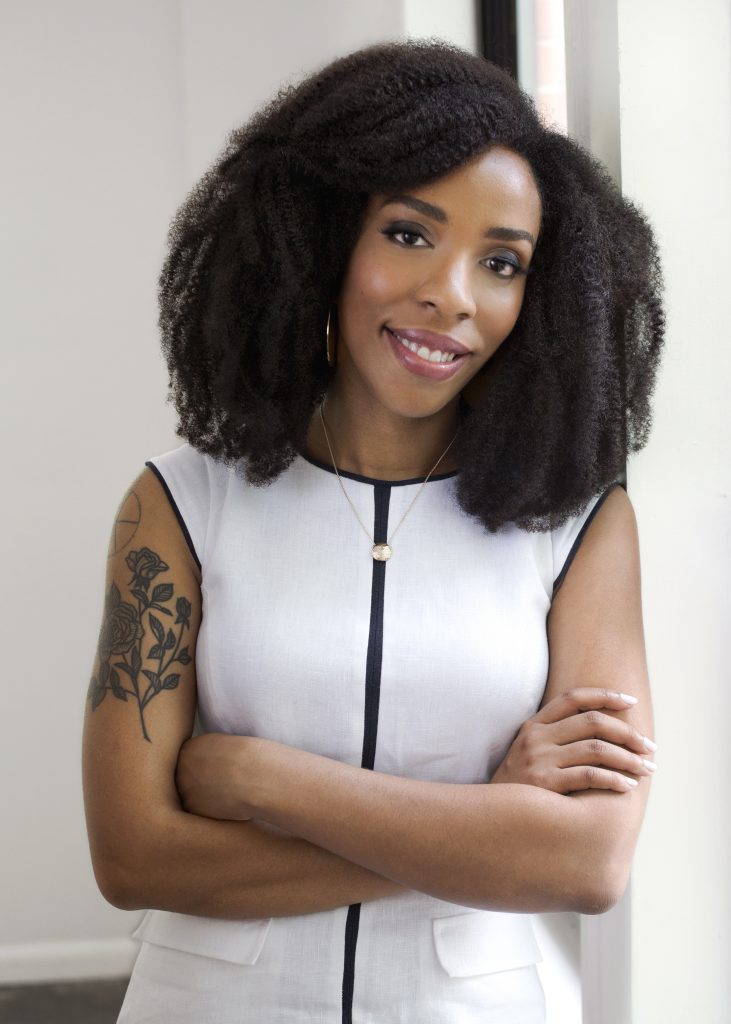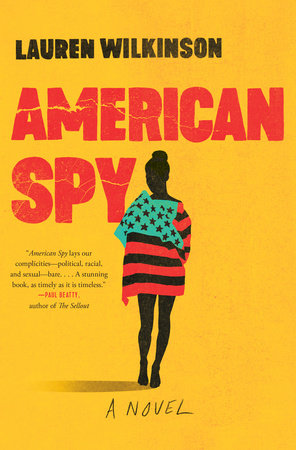There are few things on this Earth that human beings have mastered as well as betrayal. If you subscribe to Christian beliefs, betrayal is a tale as old as time.Within the first three chapters of the Bible, Adam and Eve betray God’s trust and set off this domino effect that we see throughout time. Cain and Abel, Brutus and Ceasar, Judas and Jesus, humans and the planet, Blaise Compaore and Thomas Sankara, more often than not the betrayer is someone close to you.
That’s the situation we find Marie Mitchell weighing, should she betray her country or the revolutionary who has captured her heart? Mitchell is a well trained FBI agent stuck pushing paperwork and recruiting snitches informants, waiting for a chance to prove that she would be exceptional in the field. This opportunity comes by way of the CIA – or at least agents she believes are part of the intelligence agency – with a secret mission to gather intel and seduce Burkina Faso’s leader, Thomas Sankara. Weaving violence and fight scenes, romance and introspection, subversion and self-preservation, Lauren Wilkinson takes us on a journey during the height of the Cold War and makes us examine our understanding of race, gender, and patriotism in her stunning debut novel.

The book opens in 1992 with Marie living in Connecticut with her two sons, when a strange man breaks into her home and attempts to kill her. Assuming that her past is finally catching up to her, she flees the country with her sons to her mother’s house in Martinique to regroup and figure out what’s next. Written as a journal to her boys, Marie tells the story of how she became a spy, her motivations, her fears and hopes for them, most importantly she tells them why they had to leave the country. Flipping through the ‘60s,’70’s,’80’s and early ‘90s, Wilkinson captures the readers attention and has no intention of letting go until Marie puts down her pen. She grabs you from modern times and places you firmly in a time of anxiety and overt hostility towards communism, the LGBTQ community, women, and people of color – almost like today but with slightly less repercussion and internet – that when you close the book you can’t help but feel as though you stumbled into a different realm.
There are various forces at battle in ‘American Spy,’ Marie and other black agents and police officers struggle with their identity and their line of work. Wilkinson depicts the continous struggle in her book but never seems to come to a definitive answer. On the one hand, there are those, like Marie’s childhood friend Robbie, who could never work for institutions such as the FBI and the police that have actively worked to disempower black people and those in the LGBTQ community. As one of the characters says, “Why feel obligated to people you can’t even really be yourself around.” On the other end of the spectrum, there are those like Mr. Ali, a black man who found considerable success within law enforcement and was used to spy and subjugate black people to state oppression, but us Marie points out he was essentially a “foot soldier doing what he thought was right.” In the middle are people like Marie who are conscience of what is going on and what they represent for black people but at the same time just want to exist.
‘American Spy’ does not simply connote a James Bondesque individual, Wilkinson ties it to the experience of black, brown, and biracial people. Marie’s mother, Agathe, is a biracial woman who was sent to America from Martinique as a young girl and is forced to pass as a white woman to get an education and have a better life. Wilkinson likens Agathe’s experience to spying, saying “she moved in and out of the New York places where Negroes were interdits, gathering her intelligence on the world that white people inhabited, always feeling like she was about to be made.” This is an apt description of what it sometimes feels like to be one of the few brown faces in a white space, you feel like you are ‘spying’ on a different way of life and experience from the one you live.
Most importantly, a spy is someone whose true identity is often shielded. No one truly knows who they are and that can be the experience of people of color who sometimes have to hide parts of themselves in certain spaces and environments to avoid being broken even more. As Papa Mitchell tells Marie after she receives a black eye during a sparring session right before her graduation, “you don’t owe them anything. You give them what you want to give them. But it’s easier if they think you’re one of them. It’s easier to work from the inside…. I’ve been a spy in this country for as long as I can remember.”
Wilkinson deftly grapples with the complexities of being a part of
Imparting both a spy thriller and multiple history lessons, Wilkinson explores the role of America in the world and how the “good” they do in the world for their citizens is also carried out on behalf of their minority citizens. As Sankara says in a speech in the book, “I understand that black Americans also want their freedom. But don’t confuse real freedom with the freedom of the few to exploit the rest.” Sankara did not only speak to the experience of Burkinabes or those affected by European imperialism in Africa, but he also spoke to black people across the globe freeing themselves from neocolonialism and the notion that whiteness is superior.
When he gained power he renamed the country formerly known as Upper Volta to Burkina Faso, meaning land of the upright people. He was instrumental in raising the literacy levels in a country that was purposely underdeveloped by colonial powers. He was a revolutionary when it came to preaching black self-empowerment and gender equality, sure he may have become a tinge authoritarian in his methods but aren’t we all flawed?
As with other revolutionaries such as Fred Hampton and Patrice Lumumba, the question of what could have been lingers and a lot is left to the imagination. Wilkinson takes this and draws a picture of Sankara that will move you. From her depiction, Sankara is clearly a man that believes in the potential of his country and how he can help attain it. He is firm yet gentle, caring and compassionate but also not afraid to remind you that he is a military man. If you had lukewarm or no feelings about Sankara, this book’s portrayal will undoubtedly charm your heart and change your mind.
Lauren Wilkinson delivers a powerful debut that provides readers with an introspective look at identity and our motivations cloaked in a spy thriller. As Marie attempts to understand herself and her role in a system that prioritizes the subjugation of minorities, the reader is forced to confront their understanding of the world and whether all our skin folk can be our kin folk or whether it is survival of the fittest. Though the book ends in a rather rushed manner, we can only selfishly hope that this is the beginning of a book series helmed by a black female spy.
You can find American Spy at your local bookstore and follow Lauren Wilkinson on Twitter and Instagram @Thrillkinson.




